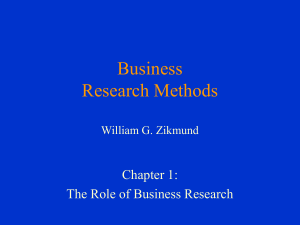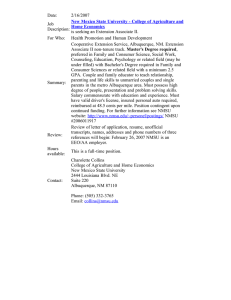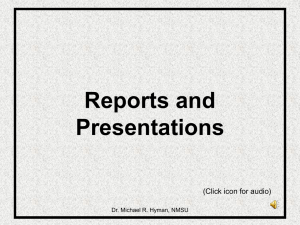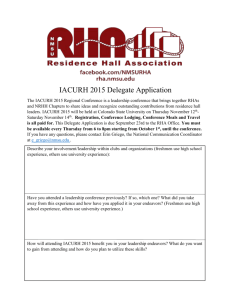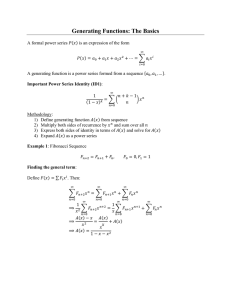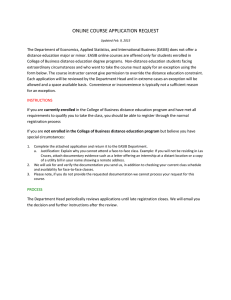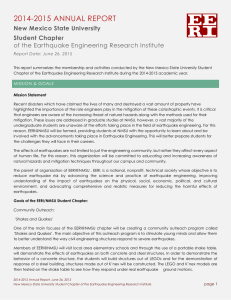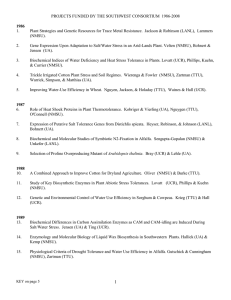Introduction to Marketing Research: Part I (Click icon for audio)
advertisement
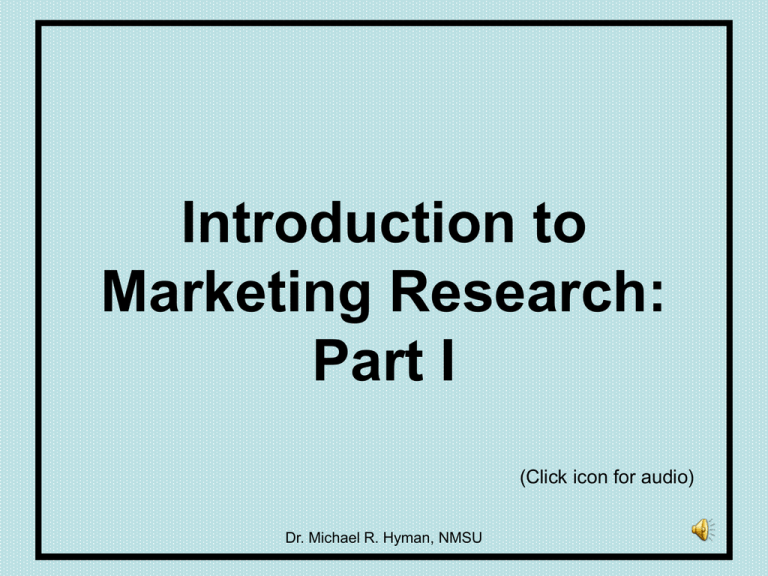
Introduction to Marketing Research: Part I (Click icon for audio) Dr. Michael R. Hyman, NMSU Important Caveat (Otherwise Known as a Warning about Protecting Intellectual Property) 2 Asynchronous Yet Interactive— e-mail Questions to mhyman@nmsu.edu 3 So Let’s Begin . . . 4 5 6 7 8 9 10 11 “It ain’t the things we don’t know that gets us in trouble. It’s the things we know that ain’t so.” Artemus Ward 12 13 14 Marketing Research Defined The systematic and objective process of generating information for aid in making marketing decisions 15 Nature of Marketing Research Answers marketing questions by: • Linking consumers, customers, and public to markets through information used to identify and define marketing • Generating, refining, and evaluating marketing actions • Monitoring marketing performance • Helping to understand marketing as a process 16 17 Marketing Research versus Marketing Information System 18 MIS vs. Marketing Research 19 20 21 Why Do Marketing Research? • Make better marketing decisions • Understand consumers and the marketplace • Find out what went wrong 22 Help managers select among viable alternatives 23 Why Not Do Marketing Research? • • • • Lack of required resources Poor timing in the marketplace Decision has already been made Managers cannot agree on needed information • Needed information already exists • Costs outweigh benefits • Lose element of surprise 24 25 26 Determining When to Conduct Marketing Research Time Constraints Availability of Data Is sufficient time available? Information already on hand inadequate? No Yes No Nature of the Decision Yes Is the decision of strategic or tactical importance? Yes No Benefits vs. Costs Does the information value exceed the research cost? Yes Conduct Marketing Research No Do Not Conduct Marketing Research 27 Information Reduces Uncertainty I don’t know if we should enter the Australian Market? 28 Value Should Exceed Estimated Costs Costs Value •Decreased uncertainty •Increased likelihood of a correct decision •Improved marketing performance and resulting higher profits •Research expenditures •Delay of marketing decision and possible disclosure of information to rivals •Possible erroneous research results 29
